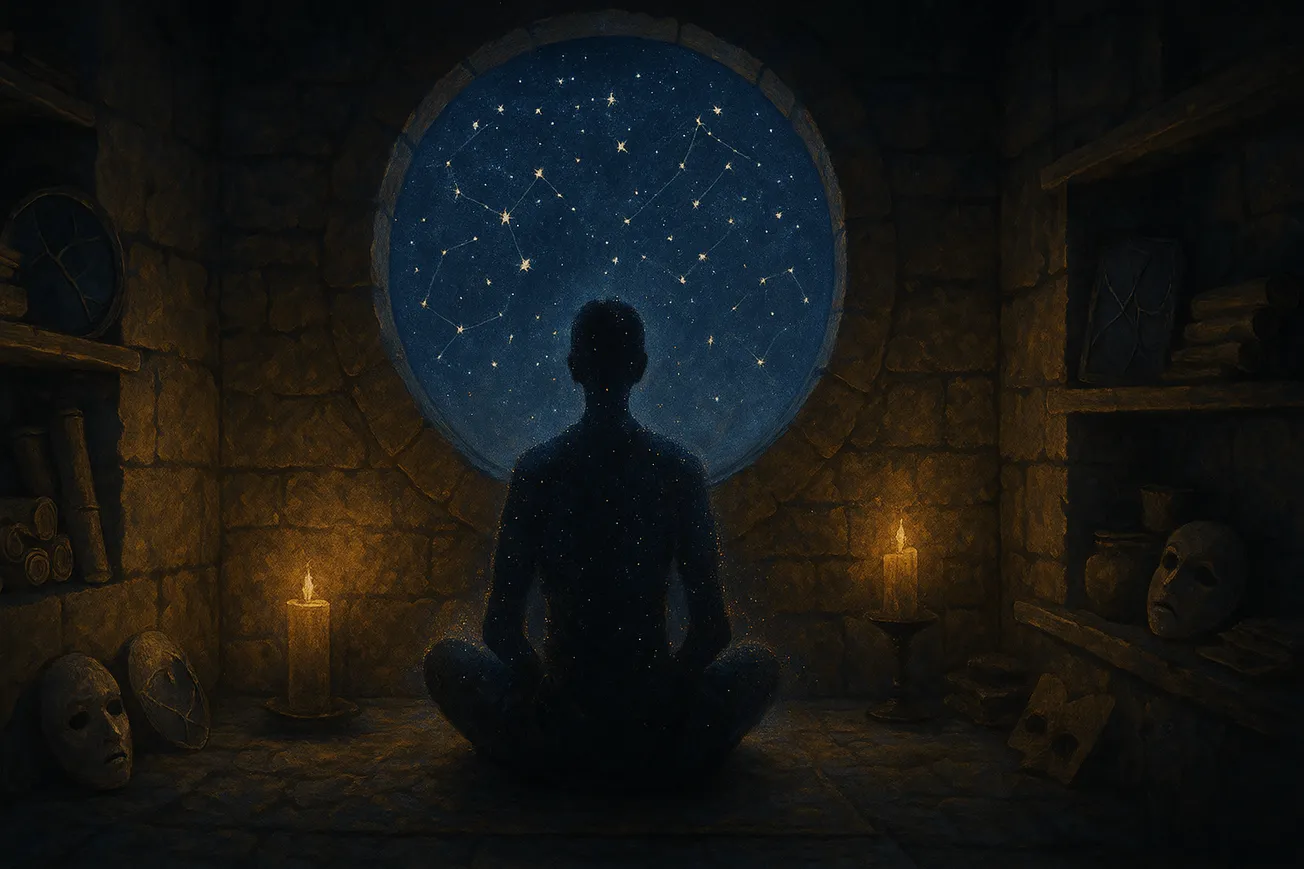🌈 The Fractal Story Engine | Mind & Meaning | (3) MM-002-R
There is a peculiar terror in discovering that what you have always believed was never yours to begin with. Not because someone lied to you, but because the shape of your life has been molded by silent agreements you never consciously made. Culture, language, family, and education hand you certainties like heirlooms. You carry them as if they were bones in your body. To unmake even one of them is to feel the floor of your identity loosen beneath your feet.
But sometimes, unmaking is not destruction. It is mercy.
We speak often of finding ourselves, but rarely of shedding ourselves. We talk about building identities, yet not about releasing them. And yet, the most sacred moments I have known were not marked by acquisition, but by subtraction. Moments when I released beliefs I had once clung to—ideas about who I should be, what success required, what was unforgivable—and watched them dissolve. In their absence, I did not feel hollow. I felt space open within me. A quietness in the architecture of self.
The idea of a machine that erases beliefs feels both absurd and strangely holy. There is something liturgical about the notion. As if belief, once solid, could be burned away like incense. Not to destroy meaning, but to make room for what cannot be spoken.
The mind is a clever architect. It builds loops, scaffolding, mirrors. We say we believe in freedom, but we repeat inherited scripts. We say we believe in truth, but we fear what it might demand. We say we believe in love, but we set conditions for its worth. The idea of unraveling beliefs one by one forces us to ask which ones were ever real.
I think often about the difference between belief and knowing. Belief requires maintenance. It demands defense and reinforcement. Knowing, when it finally arrives, asks for nothing. It is not a stance. It is the ocean pressing against the shore of your being.
Maybe the soul is not something we find, but what remains when the noise is cleared. Maybe the truth of who we are is not built by the stories we gather, but revealed in what we let fall away.
This story gestures toward something tender and difficult. The path to freedom may be a path of forgetting. The deepest truths cannot always be held in the hand. Sometimes they can only be felt in the body. And perhaps the most courageous act is to stop believing in the self we have so carefully constructed.
What can the reader learn from this story?
Letting go of our deepest assumptions can feel disorienting, but it can also be liberating. The beliefs we carry shape our reality, but they are not the same as truth. Sometimes, what we need is not more understanding, but the courage to release the frameworks that keep us from seeing clearly.

